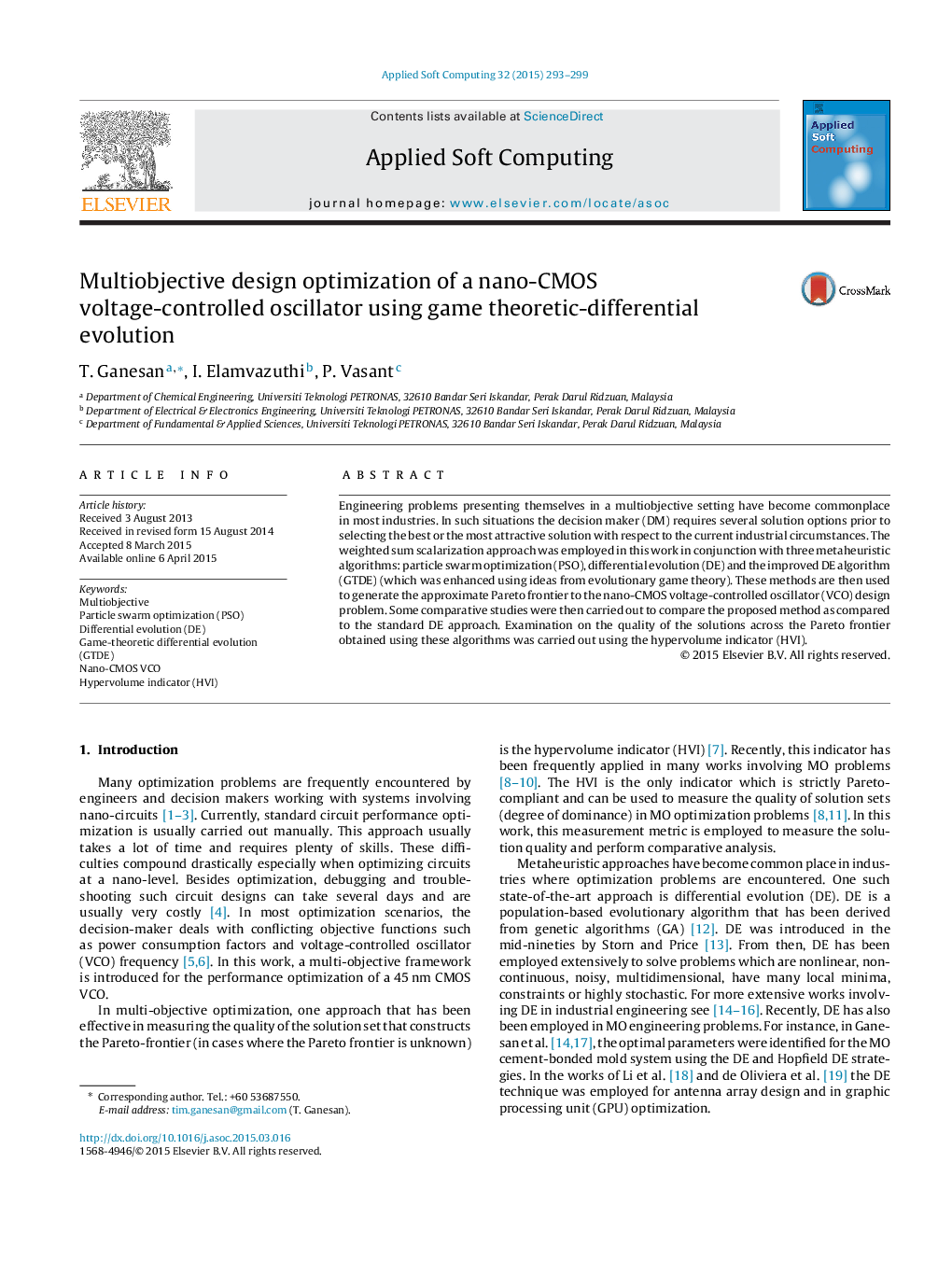| کد مقاله | کد نشریه | سال انتشار | مقاله انگلیسی | نسخه تمام متن |
|---|---|---|---|---|
| 495017 | 862812 | 2015 | 7 صفحه PDF | دانلود رایگان |

• Multi-objective design optimization of a nano-CMOS voltage-controlled oscillator (VCO).
• Frequency of oscillation, average dynamic power and leakage power are the target objectives.
• The novel game-theoretic differential evolution (GTDE) algorithm is proposed.
• Differential evolution (DE), particle swarm optimization (PSO) and game-theoretic differential evolution (GTDE) algorithms are implemented.
• New improved local optimum for the design of the nano-CMOS VCO was obtained.
Engineering problems presenting themselves in a multiobjective setting have become commonplace in most industries. In such situations the decision maker (DM) requires several solution options prior to selecting the best or the most attractive solution with respect to the current industrial circumstances. The weighted sum scalarization approach was employed in this work in conjunction with three metaheuristic algorithms: particle swarm optimization (PSO), differential evolution (DE) and the improved DE algorithm (GTDE) (which was enhanced using ideas from evolutionary game theory). These methods are then used to generate the approximate Pareto frontier to the nano-CMOS voltage-controlled oscillator (VCO) design problem. Some comparative studies were then carried out to compare the proposed method as compared to the standard DE approach. Examination on the quality of the solutions across the Pareto frontier obtained using these algorithms was carried out using the hypervolume indicator (HVI).
Figure optionsDownload as PowerPoint slide
Journal: Applied Soft Computing - Volume 32, July 2015, Pages 293–299